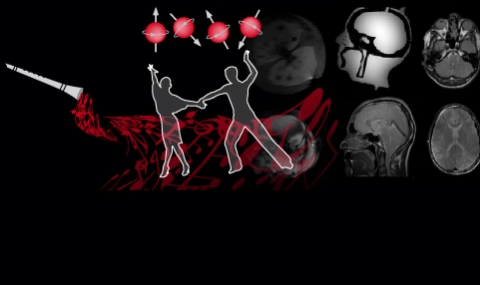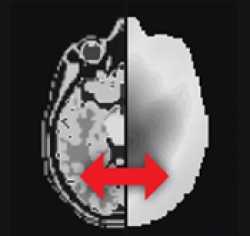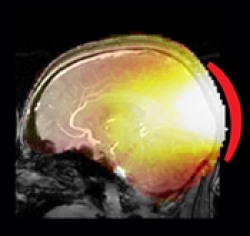The study of Magnetic Resonance Imaging (MRI) and of functional MRI (fMRI) is a prime example of contemporary multidisciplinary science; where Physics, Chemistry, Biology and Engineering meet. In our lab we integrate these fields aiming to develop new imaging methods and new tools for functional brain measurements. The study relies on the one hand on a physics background, for the development of new MRI techniques, on the other hand on a neurobiology background, to perform the actual human volunteer studies.
Our lab’s research focuses on ultra-high field MRI aiming to better understand the human brain function. With current state of the art in mind, we are looking for the next step forward to better understand the brain and its function. To do so, we are looking for new biomarkers and contrast methods, as well as new methods of acquisition. Our lab’s interests include changes in electrical conductivity (a new type of contrast), specifically within the brain, in the aim to provide more direct measurement method of the neural activation, as well as metabolic spectroscopic imaging that can shed more light on it. These topics go hand-in-hand with our study of fast and high-resolution imaging acquisitions, as well as research of artificial materials for MRI which allow to effectively zoom-in as with a magnifying lens into the brain.





